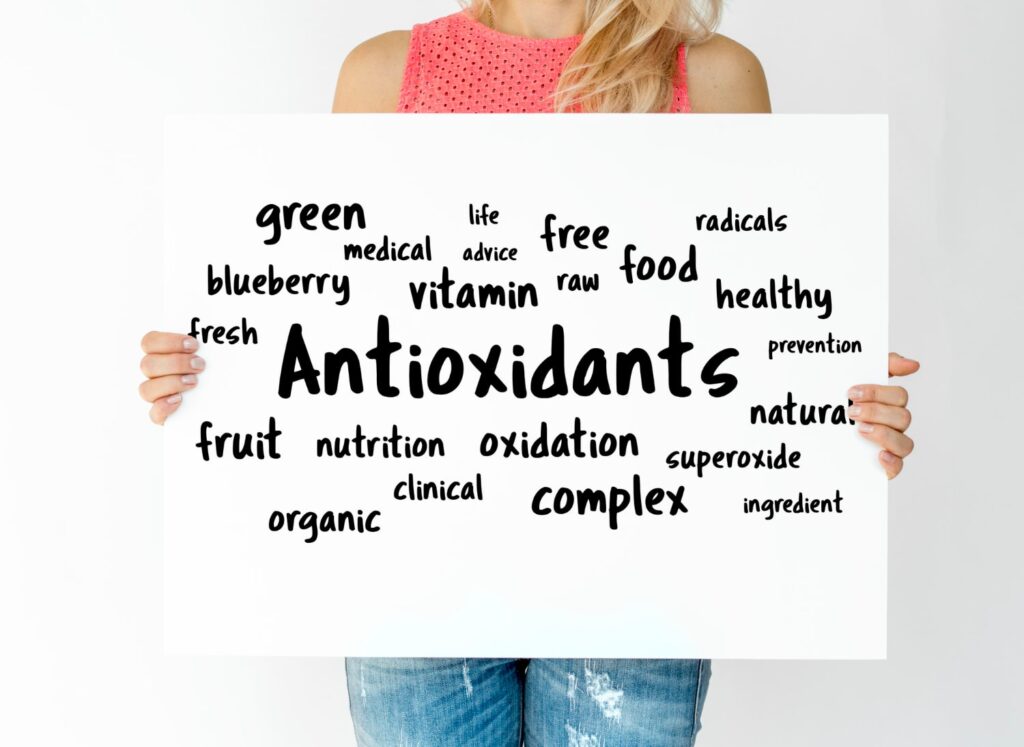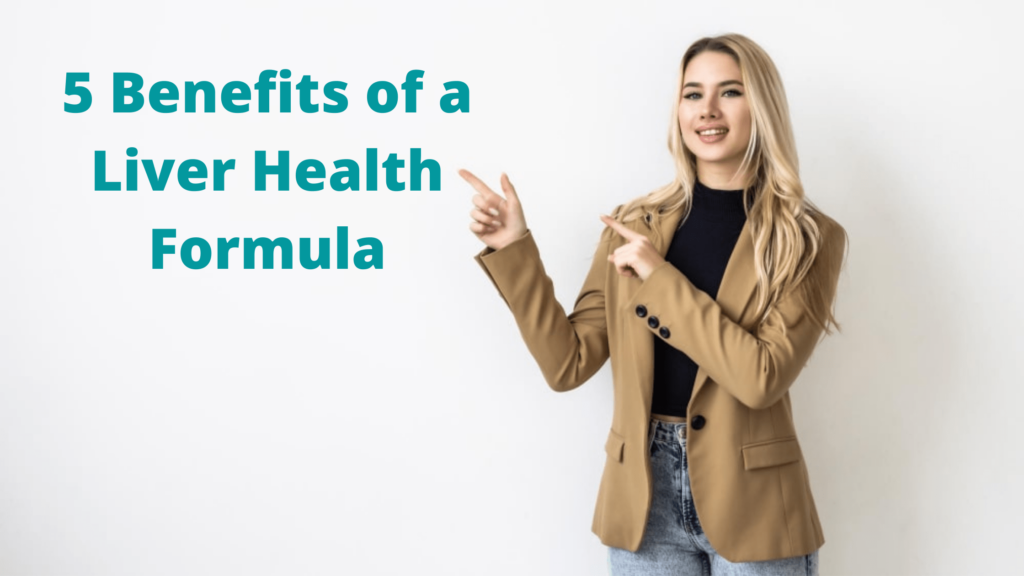
1. Introduction
Definition of antioxidants
Antioxidants are natural or synthetic compounds that help to protect cells in the body from damage caused by unstable molecules known as free radicals. Free radicals are molecules that have lost an electron, making them highly reactive and able to cause damage to cells and other molecules. Antioxidants work by neutralizing free radicals and preventing them from causing damage to cells, which can help to prevent disease. They are found in many foods, including fruits, vegetables, nuts, and grains, and are also available as supplements. Some examples of antioxidants include Vitamin C, Vitamin E, Beta-Carotene and so on.
Importance of antioxidants in disease prevention
Antioxidants play a crucial role in disease prevention by protecting cells from damage caused by free radicals. Free radicals are molecules that have lost an electron, making them highly reactive and able to cause damage to cells and other molecules. This damage can lead to inflammation, which is a major contributor to many chronic diseases such as cancer, heart disease, and Alzheimer’s disease. Antioxidants neutralize free radicals by donating an electron, which stops the chain reaction of free radical damage and thus prevent the disease.
Studies have shown that individuals who have higher levels of antioxidants in their diet or blood have a lower risk of developing chronic diseases. For example, a diet high in fruits and vegetables, which are rich in antioxidants, is associated with a lower risk of heart disease and cancer. Similarly, supplements containing antioxidants such as vitamin E have been shown to reduce the risk of heart disease.
In addition, antioxidants are also important for maintaining overall health and wellness. They help to support a healthy immune system, maintain healthy skin and eyes, and protect against cellular aging. Overall, the importance of antioxidants in disease prevention cannot be overstated. They play a crucial role in protecting cells and maintaining overall health and well-being.
2. How antioxidants work
Explanation of free radicals and oxidation
Free radicals are molecules that have lost an electron, making them highly reactive and able to cause damage to cells and other molecules. They are produced by normal cellular processes such as metabolism and are also introduced to the body through environmental factors such as pollution, radiation, and smoking. Free radicals can cause damage to cells by stealing electrons from other molecules, a process called oxidation. This can cause cells to malfunction and die, leading to inflammation and disease.
Oxidation is a natural process that occurs in the body, but an excess of free radicals can lead to an imbalance known as oxidative stress. Oxidative stress occurs when there are not enough antioxidants to neutralize the free radicals, leading to cell damage. This damage can lead to chronic diseases such as cancer, heart disease, and Alzheimer’s disease.
Examples of oxidation damage include:
- Lipid peroxidation, which can damage cell membranes, leading to inflammation and disease.
- DNA damage, which can lead to mutations and cancer.
- Protein damage, which can alter the function of enzymes and other proteins.
Antioxidants play a crucial role in neutralizing free radicals and preventing oxidation damage, by donating an electron to the free radical, neutralizing it and preventing it from causing further damage. This is why antioxidants are so important for disease prevention, by reducing the level of oxidative stress and protecting the cells from damage.
Examples of antioxidants (Vitamin C, Vitamin E, etc.)
There are many different types of antioxidants, and they can be found in a variety of foods and supplements. Some examples of antioxidants include:
- Vitamin C: A water-soluble antioxidant that is found in fruits and vegetables such as oranges, strawberries, and bell peppers. Vitamin C helps to neutralize free radicals and protect cells from damage. It is also essential for the formation of collagen, a protein that helps to support healthy skin, blood vessels, and bones.
- Vitamin E: A fat-soluble antioxidant that is found in foods such as nuts, seeds, and vegetable oils. Vitamin E helps to protect cell membranes from damage and also supports a healthy immune system.
- Beta-Carotene: A carotenoid antioxidant that is found in fruits and vegetables such as carrots, sweet potatoes, and spinach. Beta-carotene is converted to Vitamin A in the body, which is important for maintaining healthy vision and a strong immune system.
- Selenium: A mineral antioxidant that is found in foods such as nuts, seeds, and seafood. Selenium helps to protect cells from damage and supports a healthy immune system.
- Melatonin: An antioxidant that is produced by the body and helps to regulate sleep. Melatonin is found in small amounts in some foods and is also available as a supplement.
- Coenzyme Q10 (CoQ10): An antioxidant that is produced by the body and is also found in small amounts in some foods. CoQ10 is important for energy production and also supports a healthy heart.
These are some of the most well-known antioxidants, but there are many others that can be found in foods and supplements. Eating a balanced diet that includes a variety of fruits, vegetables, nuts, and other plant-based foods will help to ensure that you are getting enough antioxidants to support overall health and disease prevention.
3. Antioxidants and specific diseases
Cancer prevention
Antioxidants have been studied for their potential role in cancer prevention. The theory behind this is that antioxidants can neutralize the free radicals that can damage DNA and lead to the development of cancer. Some studies have found that individuals who have higher levels of antioxidants in their diet or blood have a lower risk of developing certain types of cancer, such as lung cancer, breast cancer, and prostate cancer.
Some specific antioxidants that have been studied for their potential role in cancer prevention include:
- Vitamin C: Some studies have found that individuals who have higher levels of vitamin C in their blood have a lower risk of developing lung cancer.
- Vitamin E: Some studies have found that individuals who have higher levels of vitamin E in their blood have a lower risk of developing prostate cancer.
- Beta-Carotene: Some studies have found that individuals who have higher levels of beta-carotene in their blood have a lower risk of developing lung cancer.
- Selenium: Some studies have found that individuals who have higher levels of selenium in their blood have a lower risk of developing prostate cancer.
It’s important to note that while these studies suggest a potential link between antioxidants and cancer prevention, more research is needed to fully understand the relationship. Also, it is not clear whether consuming high levels of antioxidants through supplements can offer the same level of protection as consuming them through diet.
It’s also important to note that cancer prevention is a complex issue that involves many factors, including genetics, lifestyle, and environmental factors. Eating a diet that is rich in fruits and vegetables, which are naturally high in antioxidants, may be beneficial for cancer prevention. But, relying solely on antioxidants to prevent cancer is not recommended and it is always best to consult a doctor or a nutritionist for personalized advice.
Heart disease prevention
Heart disease is the leading cause of death worldwide, and antioxidants have been studied for their potential role in preventing this disease. Free radicals can cause damage to the cells that make up the blood vessels, leading to inflammation and the development of plaque, which can block the flow of blood to the heart. Antioxidants can neutralize free radicals and prevent this damage, which may help to prevent heart disease.
Some studies have found that individuals who have higher levels of antioxidants in their diet or blood have a lower risk of developing heart disease. For example, a diet high in fruits and vegetables, which are naturally high in antioxidants, is associated with a lower risk of heart disease. Similarly, supplements containing antioxidants such as vitamin E have been shown to reduce the risk of heart disease.
Some specific antioxidants that have been studied for their potential role in heart disease prevention include:
- Vitamin C: Some studies have found that individuals who have higher levels of vitamin C in their blood have a lower risk of developing heart disease.
- Vitamin E: Some studies have found that individuals who have higher levels of vitamin E in their blood have a lower risk of developing heart disease.
- Beta-Carotene: Some studies have found that individuals who have higher levels of beta-carotene in their blood have a lower risk of developing heart disease.
- Selenium: Some studies have found that individuals who have higher levels of selenium in their blood have a lower risk of developing heart disease.
- Coenzyme Q10 (CoQ10): Some studies have found that CoQ10 may help to reduce the risk of heart disease by protecting the heart muscle and blood vessels from damage.
It’s important to note that while these studies suggest a potential link between antioxidants and heart disease prevention, more research is needed to fully understand the relationship. Also, it is not clear whether consuming high levels of antioxidants through supplements can offer the same level of protection as consuming them through diet.
Preventing heart disease is a complex issue that involves many factors, including genetics, lifestyle, and environmental factors. Eating a balanced diet that includes a variety of fruits, vegetables, nuts, and other plant-based foods, as well as regular exercise and not smoking, can help to reduce the risk of heart disease. But, relying solely on antioxidants to prevent heart disease is not recommended and it is always best to consult a doctor or a nutritionist for personalized advice.
Alzheimer’s disease prevention
Alzheimer’s disease is a progressive brain disorder that affects memory and cognitive function. The exact cause of Alzheimer’s disease is not known, but it is believed to be related to the accumulation of a protein called beta-amyloid in the brain, which can lead to inflammation and the death of brain cells. Some studies have suggested that antioxidants may play a role in preventing Alzheimer’s disease by neutralizing free radicals and preventing the accumulation of beta-amyloid.
Some specific antioxidants that have been studied for their potential role in Alzheimer’s disease prevention include:
- Vitamin E: Some studies have found that individuals who have higher levels of vitamin E in their blood have a lower risk of developing Alzheimer’s disease.
- Vitamin C: Some studies have found that individuals who have higher levels of vitamin C in their blood have a lower risk of developing Alzheimer’s disease.
- Beta-Carotene: Some studies have found that individuals who have higher levels of beta-carotene in their blood have a lower risk of developing Alzheimer’s disease.
- Selenium: Some studies have found that individuals who have higher levels of selenium in their blood have a lower risk of developing Alzheimer’s disease.
It’s important to note that while these studies suggest a potential link between antioxidants and Alzheimer’s disease prevention, more research is needed to fully understand the relationship. Also, it is not clear whether consuming high levels of antioxidants through supplements can offer the same level of protection as consuming them through diet.
Preventing Alzheimer’s disease is a complex issue that involves many factors, including genetics, lifestyle, and environmental factors. Eating a balanced diet that includes a variety of fruits, vegetables, nuts, and other plant-based foods, as well as regular exercise, maintaining healthy blood pressure, avoiding smoking and managing chronic conditions such as diabetes and depression, can help to reduce the risk of Alzheimer’s disease. But, relying solely on antioxidants to prevent Alzheimer’s disease is not recommended and it is always best to consult a doctor or a nutritionist for personalized advice.
Other diseases that may be prevented by antioxidants
There are many other diseases and conditions that may be prevented by antioxidants. Some examples include:
- Cataracts: Free radicals can damage the proteins in the lens of the eye, leading to the development of cataracts. Antioxidants such as vitamin C and vitamin E may help to protect the eye and prevent cataracts.
- Macular degeneration: This is a condition that affects the retina of the eye and can lead to vision loss. Antioxidants such as vitamin C, vitamin E, and beta-carotene may help to protect the retina and prevent macular degeneration.
- Rheumatoid arthritis: This is an autoimmune disorder that causes inflammation and damage to the joints. Antioxidants such as vitamin E and selenium may help to reduce inflammation and protect the joints.
- Asthma: Free radicals can cause inflammation in the airways, leading to the development of asthma. Antioxidants such as vitamin C and vitamin E may help to reduce inflammation and prevent asthma.
- Age-related cognitive decline: Free radicals can cause damage to the brain, leading to age-related cognitive decline. Antioxidants such as vitamin E and selenium may help to protect the brain and prevent cognitive decline.
It’s important to note that while these studies suggest a potential link between antioxidants and the prevention of these diseases and conditions, more research is needed to fully understand the relationship. Also, it is not clear whether consuming high levels of antioxidants through supplements can offer the same level of protection as consuming them through diet.
It’s also important to note that preventing these diseases and conditions is a complex issue that involves many factors, including genetics, lifestyle, and environmental factors. Eating a balanced diet that includes a variety of fruits, vegetables, nuts, and other plant-based foods, as well as regular exercise, maintaining healthy blood pressure, avoiding smoking and managing chronic conditions such as diabetes and depression, can help to reduce the risk of these diseases and conditions. But, relying solely on antioxidants to prevent these diseases and conditions is not recommended and it is always best to consult a doctor or a nutritionist for personalized advice.
4. How to get antioxidants in your diet
Foods high in antioxidants (fruits, vegetables, nuts, etc.)
There are many foods that are high in antioxidants and can help to support overall health and disease prevention. Some examples include:
- Fruits: Berries such as blueberries, strawberries, and raspberries are particularly high in antioxidants. Other fruits that are high in antioxidants include blackberries, cranberries, plums, and cherries.
- Vegetables: Dark, leafy greens such as kale, spinach, and broccoli are high in antioxidants. Other vegetables that are high in antioxidants include bell peppers, tomatoes, sweet potatoes, and carrots.
- Nuts and seeds: Nuts such as almonds, hazelnuts, and pecans are high in antioxidants. Seeds such as pumpkin seeds, sunflower seeds, and chia seeds are also high in antioxidants.
- Spices and herbs: Spices and herbs such as oregano, thyme, cinnamon, turmeric, and ginger are high in antioxidants.
- Dark chocolate: Dark chocolate that contains at least 70% cocoa is high in antioxidants called flavonoids.
- Red wine: Red wine contains antioxidants called resveratrol.
- Legumes: Legumes such as lentils, kidney beans, black beans and chickpeas are high in antioxidants.
- Tea: Green tea and black tea are high in antioxidants called catechins and theaflavins respectively.
Buy Green Tea and Black tea here
It’s important to note that eating a variety of foods that are high in antioxidants is best for overall health. Also, consuming fruits and vegetables in their whole form is recommended as they contain other beneficial compounds as well. Eating a balanced diet that includes a variety of fruits, vegetables, nuts, and other plant-based foods will help to ensure that you are getting enough antioxidants to support overall health and disease prevention.
Supplements (vitamin C, vitamin E, etc.)
Antioxidants can also be obtained through supplements, such as pills, capsules or tablets. Some examples of antioxidant supplements include:
- Vitamin C: Vitamin C supplements are available in different forms, such as tablets, capsules, and powders. It is recommended to consume Vitamin C in the form of food as excessive intake of Vitamin C supplements can lead to diarrhea, nausea and stomach cramps.
Nature’s Bounty Vitamin C + Rose Hips, Immune Support, 1000mg, Coated Caplets, 100 Ct
- Vitamin E: Vitamin E supplements are available in different forms such as oil, capsules and tablets. It is important to note that vitamin E supplements can interact with blood-thinning medications, so it’s best to consult a doctor before taking them.
- Beta-Carotene: Beta-carotene supplements are available in the form of capsules and tablets.
- Selenium: Selenium supplements are available in the form of tablets and capsules. It is important to note that excessive intake of selenium supplements can lead to hair loss, nail brittleness, and garlic breath.
- Coenzyme Q10 (CoQ10): CoQ10 supplements are available in the form of capsules and tablets.
It’s important to note that taking antioxidant supplements should not be a substitute for eating a healthy diet that is rich in fruits and vegetables, which are naturally high in antioxidants. Also, it’s important to consult a doctor or a nutritionist before taking any supplements as they can interact with other medications and can have side effects if taken in excessive amounts. In general, it’s best to get all the nutrients that your body needs from a healthy and balanced diet, rather than relying on supplements.
Importance of a balanced diet
A balanced diet is essential for overall health and well-being. It is important for providing the body with the necessary nutrients to function properly, including antioxidants. Eating a variety of foods that are high in antioxidants, such as fruits, vegetables, nuts, and seeds, can help to ensure that you are getting enough antioxidants to support overall health and disease prevention.
A balanced diet should include:
- A variety of fruits and vegetables to ensure a wide range of antioxidants
- Whole grains for fiber and other nutrients
- Lean proteins such as fish, poultry, and beans for growth and repair of tissues
- Healthy fats such as olive oil, nuts, and avocado for heart health
- Limited amounts of added sugar, saturated and trans fats, sodium and alcohol
A balanced diet also helps to maintain a healthy weight, which is important for reducing the risk of chronic diseases such as heart disease and diabetes. Additionally, a balanced diet can improve energy levels, mood, and cognitive function, and support a healthy immune system.
It’s important to note that a balanced diet is different for different people and also depends on factors such as age, sex, activity level, and any underlying medical conditions. Consulting a nutritionist or a dietitian for personalized advice on a balanced diet is always recommended.
5. Conclusion
In conclusion, antioxidants play an important role in disease prevention by neutralizing free radicals and preventing oxidation damage. They are found in a variety of foods and supplements and can be found in fruits, vegetables, nuts, spices, herbs, dark chocolate and tea. Consuming a balanced diet that includes a variety of fruits, vegetables, nuts, and other plant-based foods will help to ensure that you are getting enough antioxidants to support overall health and disease prevention. Some examples of diseases that may be prevented by antioxidants include cancer, heart disease, Alzheimer’s disease and cataracts. However, it’s important to note that disease prevention is a complex issue that involves many factors, including genetics, lifestyle, and environmental factors. Consulting a doctor or a nutritionist for personalized advice on a balanced diet and antioxidant intake is always recommended. It’s also important to note that supplements should not be a substitute for a healthy diet, it’s always best to get all the nutrients that your body needs from a healthy and balanced diet.
Image credit: Image by rawpixel.com on Freepik











